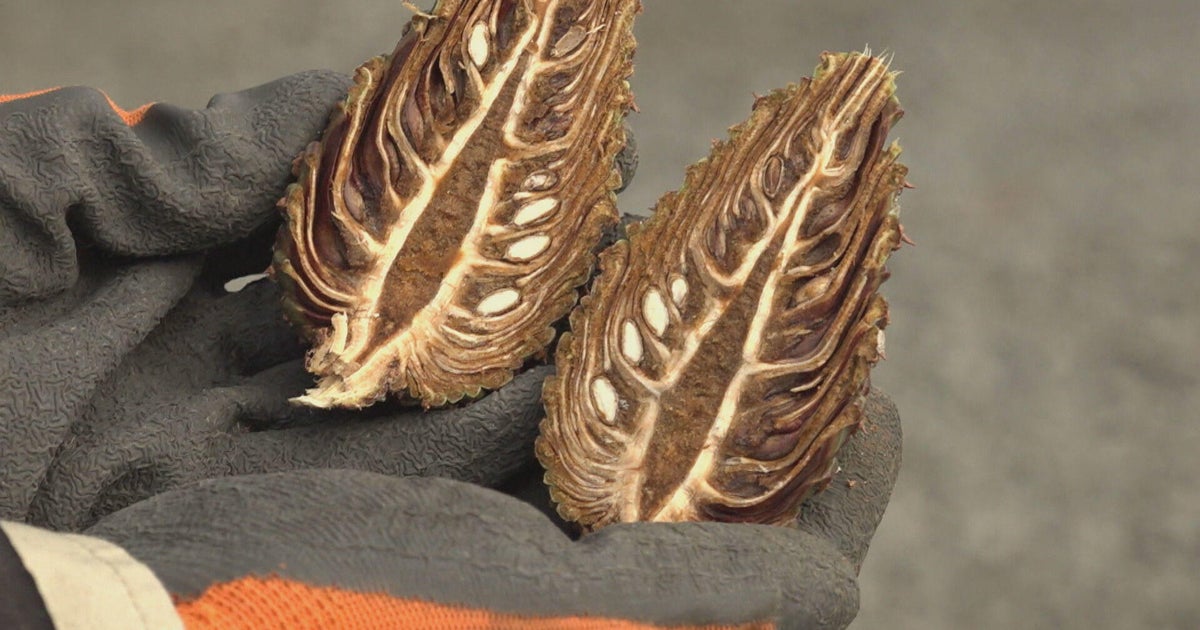Seized Russian-owned yacht Amadea finally sets sail from Fiji under U.S. control
The Amadea, a Russian-owned superyacht, set sail from Fiji Tuesday bearing a U.S. flag, ending weeks of legal and administrative hurdles that had stalled American efforts to seize the $300 million vessel it says is owned by a sanctioned oligarch.
U.S. Justice Department officials had been stymied by a frenzied legal effort by the Amadea's owner to contest the American seizure warrant, and a yacht crew that refused to sail for the U.S.
Fiji's Supreme Court ultimately weighed in Tuesday, clearing the U.S. to take the 348-foot ship. The Amadea boasts luxury features such as a helipad, a mosaic-tiled pool, a lobster tank and a pizza oven, nestled in a décor of "delicate marble and stones" and "precious woods and delicate silk fabrics," according to court documents.
The ship was targeted by the Justice Department's Kleptocapture task force, a team devoted to seizing the luxury assets of sanctioned Russian oligarchs, as part of U.S. efforts to punish Russia for its deadly war in Ukraine. Legislation supported by President Biden that has passed the House of Representatives, but not the Senate, would allow the U.S. to sell the Amadea and direct the proceeds toward the Ukraine war and recovery effort.
The U.S. claims the Amadea is owned by sanctioned gold mining billionaire Suleiman Kerimov, but a Fijian lawyer for the holding company the ship is registered to has said the U.S. is incorrect.
The lawyer, Feizel Haniff, said the true owner is Eduard Khudainatov, a Russian oil executive who was sanctioned by the European Union on June 4 but has not been sanctioned by the U.S. The Amadea is one of at least two massive superyachts — with a combined value of about $1 billion — owned by holding companies tied to Eduard Khudainatov
American officials are dismissive of his claim to the yachts, arguing he's not rich enough to own them. An FBI agent wrote in a warrant that Khudainatov is "a second-tier oligarch (at best) who would not have anywhere near the resources to purchase and maintain more than $1 billion worth of luxury yachts."
U.S. officials claim in court documents that Khudainatov is a "straw man" for the sanctioned Russian elite who really own the yachts.
Haniff declined to comment on Fiji's decision Tuesday to end the legal saga that began in April, when U.S. officials accompanied Fijian police in boarding the ship to interview crew and pore through records on the ship's computers.
Those same police would later escort U.S. officials off the ship after they boarded on the morning of May 7 and demanded the captain "immediately handover the Amadea with all available key personnel," according to a sworn affidavit by the captain, filed in Fiji court.
The day before, a Fiji court had effectively frozen the ship in place, issuing a stay of a previous ruling authorizing the U.S. to take it.
But even without that stay, the U.S. faced an unexpected hurdle. The crew, whose pay had already been frozen due to sanctions, were "refusing to sail on the Amadea with the U.S. authorities to an unknown destination," the captain wrote in his affidavit. He added that they feared cooperating with the U.S., in breach of their contracts with the ship's owner, would damage their reputations in the yachting industry.
By the end of May, contractors for the U.S. had hired a new crew of 24, led by a captain who had previously been at the helm of the Amadea.
On Tuesday, Fiji's Supreme Court ruled that the ship needed to be turned over to the U.S. in order for Fiji to comply with the United Nations Convention against Transnational Organized Crime.
Fiji's top prosecutor said in a statement to media organizations that "the court accepted the validity of the US warrant and agreed that issues concerning money laundering and ownership need to be decided in the court of original jurisdiction," in this case, the U.S. District Court in Washington, D.C.




